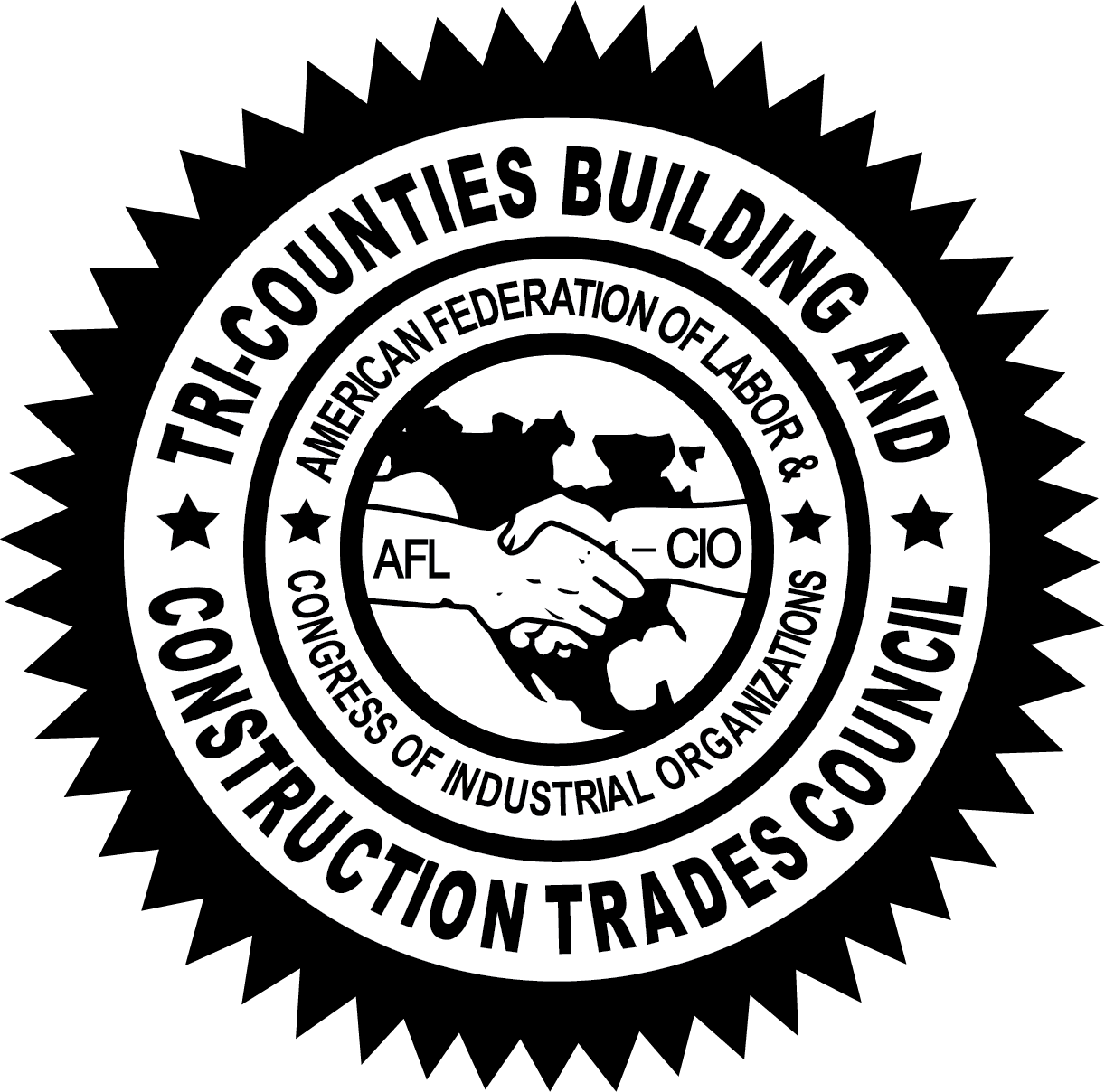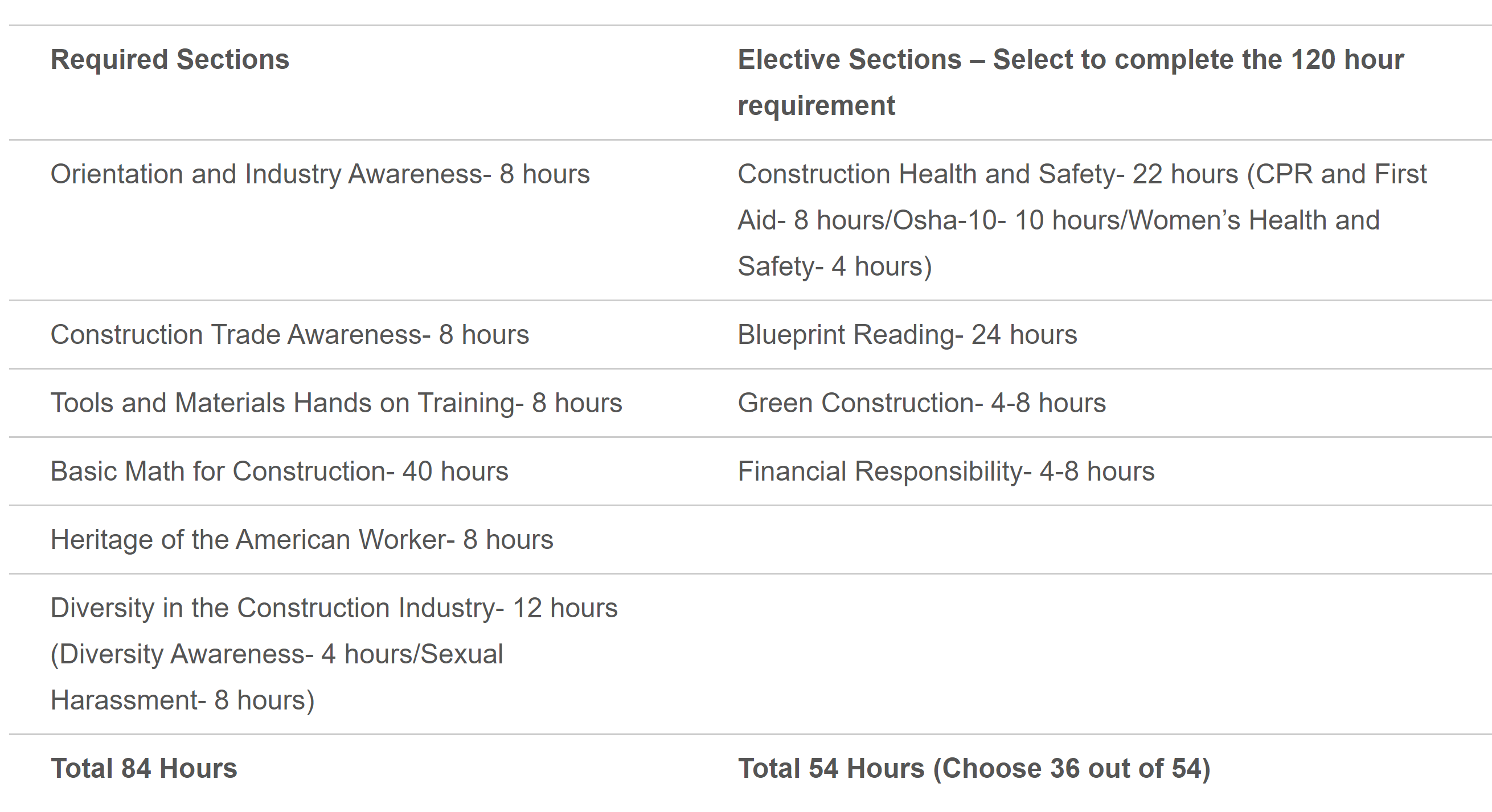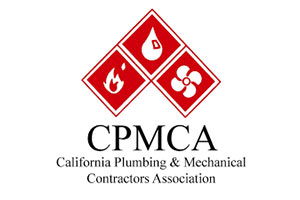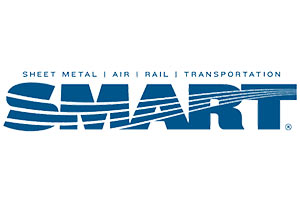TICKET TO TRADES
Local head of household careers in the trade industry through modern apprenticeship


SLO Partners’ Ticket to Trades apprenticeship readiness program utilizes the Multi-Craft Core Curriculum of the National Building & Construction Trades Council to help hands-on problem solvers enter a new career path through an accelerated training bootcamp and introductions to local building trades registered apprenticeship opportunities.
The Next Steps
1. Contact Us
Submit the info form below and we’ll send you the details.
2. Attend Info Session
Learn about the bootcamps, and paid apprenticeship opportunities.
3. Apply
Apply and interview for a spot in the upcoming class.
5. Attend Bootcamp
Upon acceptance, we’ll invite you to attend the bootcamp! It will be a life-changing experience.
6. Apprentice
You’ll have the opportunity to interview for a paid apprenticeship with our local building trades.
FAQ’S
What Occupations are included in the Building Trades?
Typically, ideal candidates for this industry enjoy working with their hands and don’t love the idea of sitting at a desk all day. Many people in these jobs are curious problem solvers that want to know how things work and like taking devices apart to discover what’s inside. Potential industry careers include carpenters, electricians, plumbers and pipefitters, operating engineers and sheet metal workers.
What is Building Trades Apprenticeship Readiness Program (ARP)? What is the Multi-Craft Core Curriculum (MC3)?
In 2007, North America’s Building Trades Unions (NABTU) Standing Committee on Apprenticeship and Training created a multi-craft training curriculum for use in Building Trades’ Apprenticeship Readiness Programs (ARPs). Building Trades ARPs were designed to prepare interested young people and transitioning adults to enter and succeed in registered apprenticeship programs, which are gateways to good middle class jobs in the US construction industry. The more than 100 ARPs currently in operation across the US are sponsored by State and Local Building Trades Councils, Training Coordinators and joint apprenticeship training committees (JATCs) in partnership with local community groups, construction contractors, government agencies and schools.
The goals of the Building Trades ARPs are to (1) increase the number of qualified candidates for apprenticeship across all crafts, (2) to increase the diversity of apprenticeship candidates by recruiting women, people of color and veterans, and (3) to increase the retention rate among apprentices by providing them with a deeper understanding of both the industry and the role of craft unions in construction.
The educational foundation for the Building Trades ARPs is the Multi-Craft Core Curriculum, or MC3, a standardized, comprehensive, 120-hour construction curriculum designed to help young people and transitioning adults choose and succeed in an apprenticeship program that is appropriate for them. In 2012, the US Department of Labor recognized the MC3 with its Registered Apprenticeship Innovator and Trailblazer Award.
What topics are included in the MC3?
There are nine sectors or chapters in the MC3:
• Construction Industry Orientation
• Tools and Materials
• Construction Health and Safety
• Blueprint Reading
• Basic Math for Construction
• Heritage of the American Worker
• Diversity in the Construction Industry
• Green Construction
• Financial Literacy
Are some parts of the MC3 required and others optional?
Yes, some sections of the MC3 chapters are required and some are optional. The table below explains this in detail.

 Table Notes: All MC3 Programs must contain a minimum total of 120 classroom hours. The 84 hour core is required for all programs. Building Trades Council representatives and their partners may add additional hours to the MC3 at their discretion.
Table Notes: All MC3 Programs must contain a minimum total of 120 classroom hours. The 84 hour core is required for all programs. Building Trades Council representatives and their partners may add additional hours to the MC3 at their discretion.
How do I apply? What are the next steps?
Simply enter your contact information below, and we will send you an email with more information. The next step is to attend either an in-person or web-based info session, to learn more about the program and ask any questions you may have. After that, you’ll submit a full application, then be told whether you’re accepted to a program.
What are the three phases of the program?
- Phase 1: “Bootcamp Prep” – In this phase a large number of people are exposed to the key curriculum required for the MC3. From the group taking part in the pre-apprenticeship classes a smaller group will be chosen to proceed to phase 2,
- Phase 2: “Bootcamp” – In this phase additional elective coursework required for the MC3 is provided that enable the apprentice ready candidate to have the core skills required to proceed to phase 3 and begin their work experience as a registered apprentice with the building trades.
- Phase 3: “Apprenticeship” – automatic interview with a local registered building trades apprenticeship. Introductions local registered building trades apprenticeships to determine elligibility and acceptance as a paid appentice.
Why construction apprenticeship?
A construction apprenticeship dramatically increases a young person’s standard of living
- Apprentices earn while they learn and receive training. Apprentices start at 40% and incrementally move up to 90% before graduating the program as journeyman and receiving 100% of the wages that licensed and trained construction professionals make.
- According to the US Department of Labor, the average annual wage for someone who completed an apprenticeship is approximately $50,000 Nationally – California and local averages exceed this salary.
- Apprentices who complete their program earn approximately $300,000 more over the course of their careers than non-apprenticeship participants.
Apprentices receive high quality hands-on training and classroom education – with no student debt
- Unlike college, students work full-time while being trained for a well-paid construction trade and there’s no cost for the training – meaning no student debt!
- Because of the demand for skilled workers, Building Trades contractors and their union partners have invested heavily in education and training for registered apprenticeship.
- The Building Trades and their signatory contractor partners invest over $1 billion annually in apprentice and journey-level training.
- Apprentices accumulate hundreds of hours of training both in the classroom and on the job – where they are taught and supervised by certified and highly-trained construction apprenticeship trainers.
Construction Apprenticeship = “the other four year degree”
- The safest, most highly skilled and productive construction craft workers in the US receive their training through privately-funded, local joint apprenticeship and training committees (JATCs), which offer nationally-recognized, state-of-the-art curricula.
- The building Trades’ Registered Apprenticeship programs are “earn while you learn” training programs – and they have all been assessed for college credit.
- Many Building Trades apprenticeship programs also have articulation agreements with local community colleges.
- Once students complete their apprenticeship, they have the skills, nationallyrecognized certifications, and college credits they can take anywhere in the country.
Construction Apprentices have long-term prospects for good paying jobs – with health and retirement benefits
- Among construction apprentices, 75 percent are trained in the unionized construction sector – known as the joint apprentice training committee (JATC) system.
- Apprentices are given real world, in-depth, on the job training that teaches them cutting-edge skills and the means to implement them across their careers.
- Construction jobs can’t be outsourced or sent overseas – and the long term outlook for construction job growth in the US is very favorable.
- Great job prospects in construction for skilled trades workers means that apprentices have opportunities for long term, middle class careers immediately after joining the work force.
Construction Apprentices receive portable credentials and national industry certifications = life long learning
- All Building Trades apprenticeship programs are registered with either the national Department of Labor’s Office of Apprenticeship or the State Apprenticeship Agencies.
- These registered apprenticeship programs provide the participants with a high quality, portable, industry sanctioned, nationally recognized credential that certifies occupational proficiency in the construction industry.
- The Building Trades also provide training for tens of thousands of journey-level workers each year, with the goal of continually improving their cutting-edge skills.
What would I learn in MC3 that would prepare me for a construction apprenticeship?
The Multi-Craft Core Curriculum (MC3) is a comprehensive pre-apprenticeship training curriculum. It was developed and approved by the Building Trades National Apprenticeship and Training Committee in 2008. In 2012, the U.S. Department of Labor awarded the Building Trades and the MC3 the Department’s Registered Apprenticeship Innovator and Trailblazer Award at its 75th Anniversary celebration.
Why Teach the MC3?
Contact Us
Please contact us for more information on bootcamps and apprenticeships.
SLO Partners collaborates with other local organizations to positively impact our community.




Visit Us
SLOCOE
3350 Education Drive
San Luis Obispo, CA 93405
SLO Partners is brought to you by the San Luis Obispo County Office of Education







